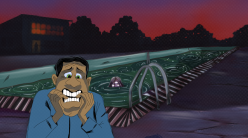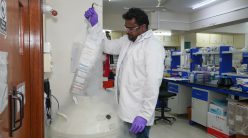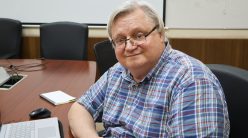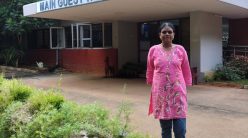The autobiography of IISc’s first Director Morris W Travers, published by IIScPress, was released by historian Ramachandra Guha and IISc’s former Director P Balaram
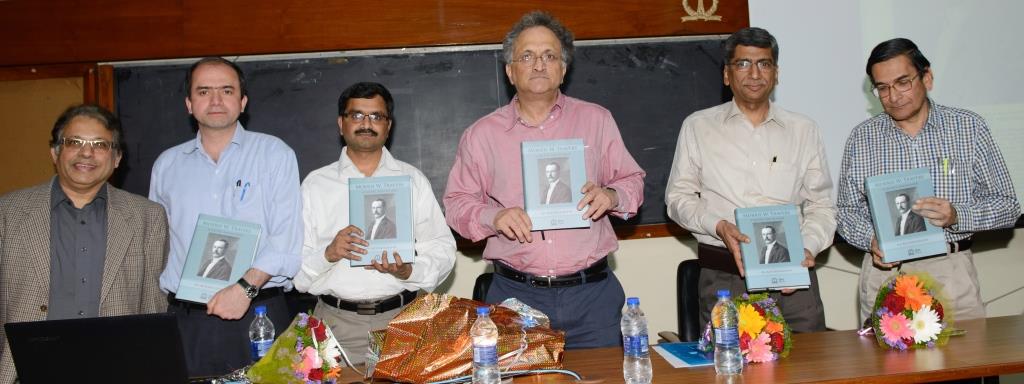
The autobiography of IISc’s first Director Morris W Travers, published by IIScPress, was released on 20 February 2017 by historian Ramachandra Guha and IISc’s former Director P Balaram. The current Director, Anurag Kumar, was also present on the occasion.
A student of Nobel Laureate Sir William Ramsay, Travers was a British chemist, who discovered three missing elements in the periodic table during his stint at the University College London. The discovery of these elements — krypton, xenon and neon — earned him the nickname ‘Rare Gas Travers’. Eight years later, Travers was appointed the first Director of the newly set-up institute of scientific research, the first of its kind in India.
Travers arrived in India in 1906, and assumed charge as the Director of the Institute at the young age of 34. His journey from London to India — from being a chemist to the role of an administrator and an institution builder at the University of Bristol, UK — is succinctly chronicled in his autobiography Morris W Travers: Scientist and Pioneer. The book was released at the Faculty Hall in IISc’s Main building, whose construction Travers himself oversaw.
Besides carrying a detailed account of Travers’ early life in England, his stay in India, and life after IISc, this book incorporates letters that Travers wrote and received, giving us a peek into his personal life. It also has a section dedicated to his work on borohydrates at the Institute which paved way for future research in this field.
Besides carrying a detailed account of Travers’ early life in England, his stay in India, and life after IISc, this book incorporates letters that Travers wrote and received, giving us a peek into his personal life
The autobiography has been edited by Travers’ grandsons David MW Travers and John R Ainslie who visited IISc during its centenary celebrations in 2009. Based on suggestions made by Balaram, they obtained Travers’s handwritten manuscript from the University College London Library. Later, GK Ananthasuresh (then Chair, IIScPress and Professor, Mechanical Engineering) was instrumental in bringing the book to life as an edited autobiography. The efforts were coordinated by Kavitha Harish from Archives and Publications Cell (APC).
During his talk, Guha said that he found the book visually attractive, readable and accessible, and congratulated IIScPress for its efforts, but he also believed that Scottish biologist and town-planner Patrick Geddes and Swami Vivekananda, who, he said, played prominent roles in the prehistory of IISc, should have found a mention in the book. According to him, Geddes laid the first blueprint of the Institute and Swami Vivekananda instilled the idea of establishing an institute of scientific research in JN Tata’s mind, the founder of the Institute.
Adding to Guha’s comments, Balaram felt that the gestation period of the Institute was missing in his autobiographical account as Travers arrived on the scene much later. “This part of Institute’s history is still unexplored and needs further investigation,” he said.
Highlighting the importance of the autobiography, Balaram suggested that contemporary directors could learn a great deal from the story of Travers. “Take the case of messes on campus. Travers had to run an independent mess for a single student, and I [too] had to also deal with mess issues during my tenure as the Director,” he said with a smile. He added that some of the traditions Travers started are still followed — for instance, the Director has to balance the roles of both an administrator and that of a researcher.
“Take the case of messes on campus. Travers had to run an independent mess for a single student, and I [too] had to also deal with mess issues during my tenure as the Director,” he said with a smile
In his welcome remarks, Amaresh Chakrabarti (Chair, IIScPress and Centre for Product Design and Manufacturing) gave an overview of the kind of books published from IIScPress and said that in the future, IIScPress would aim to release more books and also collaborate with other publishers to bring in affordable and quality science and technology books catering to Indian postgraduate students.
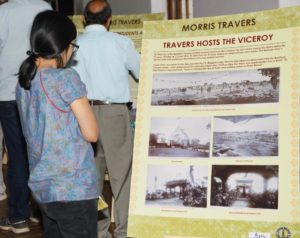
Kaushal Verma (Chair, APC) gave the vote of thanks and highlighted the vignettes that APC is planning to bring out. As part of this series, a booklet on Morris Travers, compiled by Sowmithri Ranganathan from APC, was distributed to the participants.
Following the book launch, an exhibition entitled Morris Travers and IISc: The Road Traversed was also on display. The exhibition was curated by Ranganathan.

